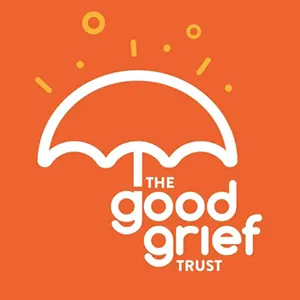Support with Bereavement
Dealing with the loss of a loved one can be emotionally overwhelming. Whether you’re facing a recent bereavement or struggling with long-term grief, it’s important to know that support is available.
Learn about help and advice on coping with bereavement and illness:
- Learn how to access trusted grief counselling, emotional help, and support groups after losing a loved one
- Discover the stages of grief and how grief affects people differently and why there is no normal way to mourn
- Advice for friends, neighbours, and relatives on what to say (and what to avoid) when comforting someone who is bereaved
- Learn why facing grief openly, rather than avoiding it, can ease the emotional burden over time
Some people feel overwhelmed for months, while others recover more quickly. Most people find it easier to cope with bereavement when they’re not alone.
Table of contents
In one of the last phases, the mourner establishes a relationship with their surroundings and themselves. However, mourners can also slip back into a state of grief again. You can’t put a time-frame on healing. Grief affects us all differently, and there are no set rules on how to deal with it.
Many people reach out to professionals for support with bereavement, as they can try therapies that can assist. Memories will keep you from moving forwards more often than not. Bereavement support groups can also be very helpful, as you are mixing with other people in the same position. Well-meaning advice from friends or family can sometimes be more upsetting than helpful. Relatives, neighbours, and friends, have a hard time dealing with grief.
During the phases of mourning, the order, intensity and duration are different for each person. Therefore, grief is individual and does not follow any scheme. Older models of the mourning phases stated that the task of the bereaved was to detach themselves from the deceased in order to progress on. Today we know that this contradicts the experience of most mourners. Most have a need to maintain a connection to the deceased in a different form.
Bereavement support groups
Bereavement support groups are a safe space where people who have lost loved ones can come together to share their experiences, thoughts and feelings. These groups provide emotional support, practical advice, and a sense of community.
If you are struggling with grief, it’s important to seek help. Grief can cause depression and anxiety, and it can be challenging to deal with on your own.
Understanding grief
Grief is a complex process that can be challenging to navigate. There are no set stages of grief, but there are some common emotions that people experience when dealing with loss:
- Consuming thoughts for the deceased
- Unable to enjoy good memories of the deceased
- Feeling sad, emotional, angry
- A loss of enthusiasm
- Unable to accept the death
In the beginning, there is often denial. An individual may be unable to somehow integrate the loss into life. In the second phase, strong emotions break through, often contradicting each other. It may be that anger sprouts up against the deceased, or past injuries all come back into thought. In the next moment, you feel deep anxiety and feel the connection, but realise this connection no longer exists in its original form.
There are many coping strategies that can help with grief. Some people find comfort in creating small routines, such as lighting a candle or visiting a loved one’s grave. Others find solace in sports or exercise, which can help relieve tension and boost energy levels. Keeping a diary, organising daily tasks, and taking small steps can also be beneficial. All these actions can be on their own or collectively be a form of support with bereavement.
It’s essential to remember that grieving is a personal process, and you should take your time to find what works best for you. Grief affects everyone differently, and there is no right or wrong way to grieve.
You need to first understand grief to then be able to deal with it. According to many professional websites, grief needs space; the ways to create space are very different. Small routines, such as the picture of the deceased on the window sill, lighting a candle, and the walk to the grave, can all be important. Others listen to certain music, write a diary, and have special days out. Some ask themselves, what would be good for me? The pain can keep returning, and dealing with it actively can help.
Sports and exercise also help to relieve tension and feel vitality again; when you feel out of balance. You may feel you need a distraction, but also time to grieve. Crying is also good; it can provide support with bereavement as it purges many emotions and helps you make a clear connection between your pain and thinking straight.
Professional support with bereavement
There are many different types of help with bereavement available, including online groups, local community groups, and more structured therapy groups.
Professional support should be sought if the grief exclusively determines everyday life for a very long time and restricts it very strongly. There are many types of diagnoses for “persistent grief disorder” in psychotherapy. Therapists feel challenged here to find and determine the line between “normal” and “in need of treatment”.
It is positive that this diagnosis means that grief is no longer classified and treated as depression because it is not. With depression, emotions are absent – with grief, they are strong. Getting bereavement and illness help can often be your first step in dealing with a situation. Grief can cause depression and anxiety. You should reach out immediately if you feel you can’t cope. Some signs of depression include:
- Poor diet
- Lack of concentration
- Poor responses
- Feeling melancholy
- Bad decision making
- No energy for basic tasks
- Thoughts of dying
Dealing with grief is never easy, but getting support with bereavement through a group group can provide the help and support you need in a safe and supportive environment where people can connect with others who understand what they are going through. Local hospitals and hospices have information on local groups. You can also search online for support groups that are specific to your type of loss.
A daily plan in which you take small steps will help you to organise at least the bare minimum. Keeping a diary can help, but staying organised with your own priorities will greatly assist you. Another thing to remember is that you are never alone. There are always people to help and others in the same situation.
It’s important not to do anything out of character during this emotional time as you may regret it later. Quitting your job, selling your home or breaking up with a partner, these can be made in haste, which can be destructive long term.
Mesothelioma support
Abestos.com who are USA leaders in Mesothelioma resources (cancer from asbestos) have created a free guide to help cope with bereavement.
The different bereavement support groups shown below are established organisations which are free to use.
For additional help the blog entitled Bereavement Counselling Support gives further guidance on support with bereavement.
Death doula services
A death doula can provide very valuable services for someone looking after a terminally ill person and likewise after the person has died. They provide emotional support to both the terminally ill person and their family. This care is not in the form of medical, but emotional, spiritual and physical support. They can also help out with day-to day tasks such as shopping, and providing respite for a carer is also another important service that they offer. Some doulas specialise in still born deaths.
There a small number of doulas on the NHS but the majority is a paying service. The following two links can provide details of how to contact a doula near to where you live and also answer more questions you may have.
International End-of-Life Doula Association
National End-of-Life Doula Alliance

The Good Grief Trust
The Good Grief Trust is the UK’s leading bereavement network, signposting to 1000+ charities and bereavement services under one umbrella.
Run by the bereaved for the bereaved, the charity exists to ensure no-one is alone in their grief, and they can find the right help from day one, for any bereavement, wherever they live.

Marie Curie
89 Albert Embankment
London. SE1 7TP
Freephone: 0800 090 2309
Marie Curie is the UK’s leading end of life charity. We provide frontline nursing and hospice care, a free support line and a wealth of information and support on all aspects of dying, death and bereavement.
Our leading research pushes the boundaries of what we know about good end of life, and our campaigns fight for a world where everyone gets to have the best experience possible at the end of their lives.

Down to Earth
17 Old Ford Road
Bethnal Green
London
E2 9PJ
Telephone: 020 8983 5055
Down to Earth is a UK-wide helpline run by the independent charity Quaker Social Action. They offer free, confidential advice to anyone struggling with funeral costs where the funeral has not already taken place.
They support people to reduce costs, identify ways to raise money, and get the right government support.

Mesothelioma Hope
1330 Boylston Street
Suite 400
Chestnut Hill
MA 02467
USA
Tel: 001 855 722 2974
Mesothelioma Hope is an American based organisation that provides in-depth specialist help and advice on this rare fatal cancer. Caused from asbestos, this cancer forms in the lungs (Pleural Mesothelioma) or abdomen (Peritoneal Mesothelioma). They also offer advice on all different treatments and drugs for this cancer.

Sands
10-18 Union Street
London
SE1 1SZ
Freephone: 0808 164 3332
Sands are the leading stillbirth and neonatal charity in the UK.
They provide national support for bereaved people suffering from the loss of a baby via its helpline which is freephone, mobile app, online community and through around a 100 regional support groups.

Cruse Bereavement Support
Cruse Bereavement Support provides a helpful service, offering advice and empathy for those finding it difficult to deal with grief. Grief can often be long-suffering, and it is important to remember that grief can affect a person’s physical and mental health. Many people suffering are often not aware of the changes in their well-being that grief can cause.
Samaritans
Freepost
SAMARITANS LETTERS
Anyone can contact Samaritans FREE any time from any phone on 116 123, even a mobile without credit. This number won’t show up on your phone bill.
For further helpful information covering different aspects of funerals from poems, flowers, bereavement gift ideas, what to wear at a funeral, low-cost headstones and much more, visit the Save Funeral Costs™ blog.

